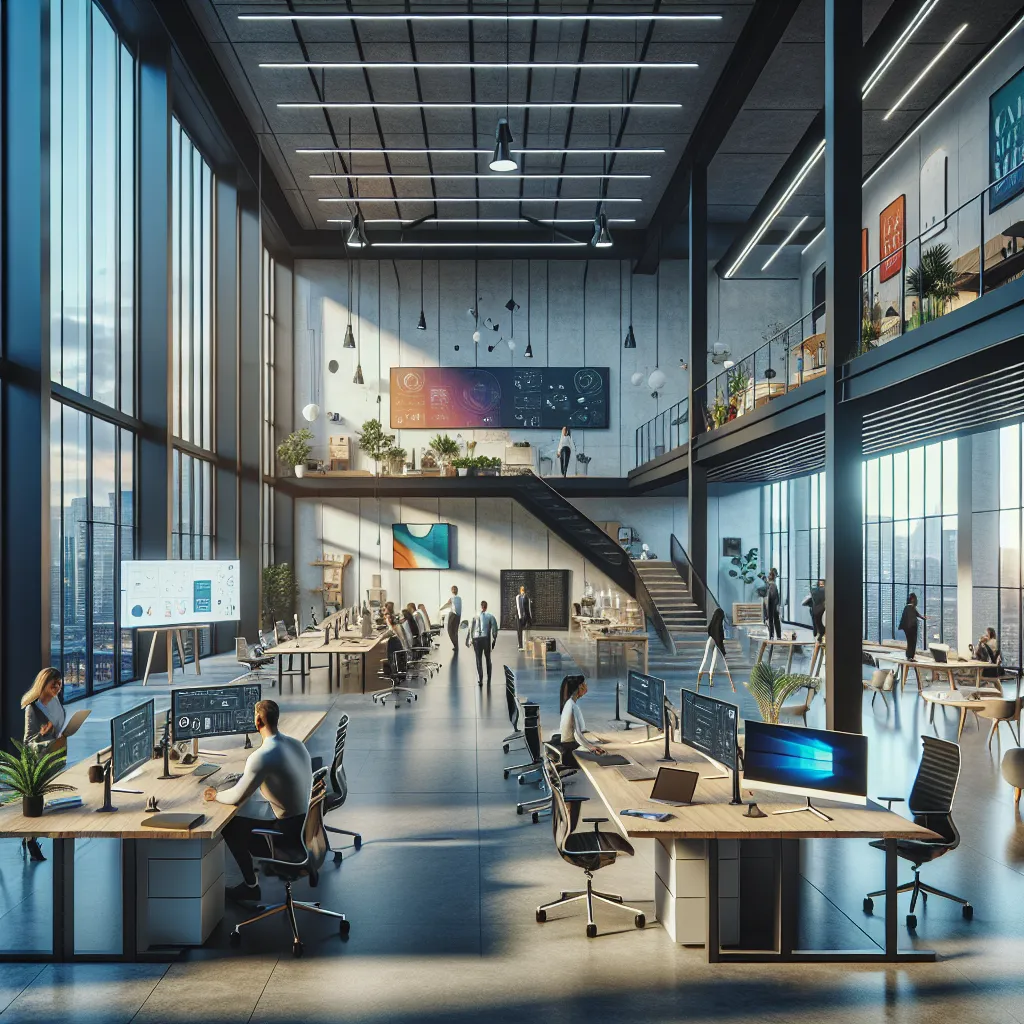Will commercial real estate offices have a future?

Gregoire Leclerc, deputy CEO of EBP Group, asks about the transformation that office real estate is undergoing as coworking workspaces seek a second wind.
1 - Coworking's challenges
Office real estate is not a central topic of political debate, but it has been particularly shaken up late this year. First, because it is an integral part of the housing sector, which is itself under threat due to a contradictory and multifactorial crisis. Second, because it faces falling volumes and investor uncertainty. Finally, it suffers, like other sectors, from expectations in the economic and financial system. While the current situation allows this diagnosis, it is unfortunately not the only reason.
2 - Attractive policies for staff with remote working
It's a fact: the pandemic has changed the meaning and utility of the workplace. Now the focus is on cost and the alignment between the company's project and employee performance in meetings. Until 2020, France was little concerned with remote working to the extent that few economic players were developing it. This was not without serious labor law and human relations issues. The lack of interaction was replaced through video communication. However, employers as well as employees seem to want to return to a more harmonious balance.
3 - Hybrid work instead of a permanent office.
Meanwhile, coworking workspaces have come to the forefront thanks to institutions and individuals to overcome isolation and revitalize vacant real estate in city centers. As a gathering place, access to digital technology, these spaces tended to appeal primarily to startups and independent workers. Allowing for the organization of young entrepreneurs' lives, this stimulating environment is usually well located and offers additional services nearby. But in practice coworking has shown its limitations as it is only available for activities of a virtual nature or for small businesses. Some sectors it does not provide enough privacy to fulfill their mission (e.g. lawyers, experts), alternative locations are also perceived as noisy, which reduces user efficiency. COVID-19 then played a role, displacing shared office space and putting coworking actors in a tough spot against the rise of remote work.
Meanwhile, coworking workspaces have come to the forefront thanks to institutions and individuals to overcome isolation and revitalize vacant real estate in city centers. As a gathering place, access to digital technology, these spaces tended to appeal primarily to startups and independent workers. Allowing for the organization of young entrepreneurs' lives, this stimulating environment is usually well located and offers additional services nearby. But in practice coworking has shown its limitations as it is only available for activities of a virtual nature or for small businesses. Some sectors it does not provide enough privacy to fulfill their mission (e.g. lawyers, experts), alternative locations are also perceived as noisy, which reduces user efficiency. COVID-19 then played a role, displacing shared office space and putting coworking actors in a tough spot against the rise of remote work.
14 May 2025
13 May 2025
14 May 2025




At the same time, companies have also been forced to reflect on their own real estate and what tasks can be accomplished in-person or remotely. In addition, the labor market is seeing a significant share of offers where remote work is offered as an advantage to every employee. In fact, it can be a valid advantage for both parties. On the one hand, the company can provide for employee turnover and reduced space or avoid financing an expansion. On the other hand, it is considered more attractive as it takes into account the demands of family and professional life. It also alleviates mobility issues, especially lost travel time. An employee's identification with the company is no longer tied to a location or building, but to the overall environment of their mission, where remote work is a key element. As a motivating and satisfying factor, research shows it promotes commitment, productivity and a sense of belonging.
According to the Association of Human Resource Management Professionals, hybrid work will become the norm by 2025, i.e. 2-3 days according to enterprise practices. In addition, research from Boston Consulting Groupe confirms that 80% of job seekers expect more flexibility in their workplaces and 46% expect more flexibility in their schedules. This leads to a reconsideration of the very utility of spaces, which will serve as gathering places rather than places to accomplish tasks. Employees don't want less social interactions, but rather in better quality. Consequently, group coherence is no longer ensured by task efficiency at a fixed location, but mainly by the evolution of managerial policies. They should provide training, give special value to tasks, and provide more personalized support over time.
In a sense, companies must fit into the concept of smart cities, smart cities based on a new form of urban development. The goal is to improve the quality of life of citizens through new technologies based on an ecosystem of facilities and services. Office real estate is not obsolete if it fits into this model, away from skyscrapers and large buildings to offer a new workplace experience.
Comment
Popular Offers

Subscribe to the newsletter from Hatamatata.com!
Subscribe to the newsletter from Hatamatata.com!
I agree to the processing of personal data and confidentiality rules of Hatamatata








